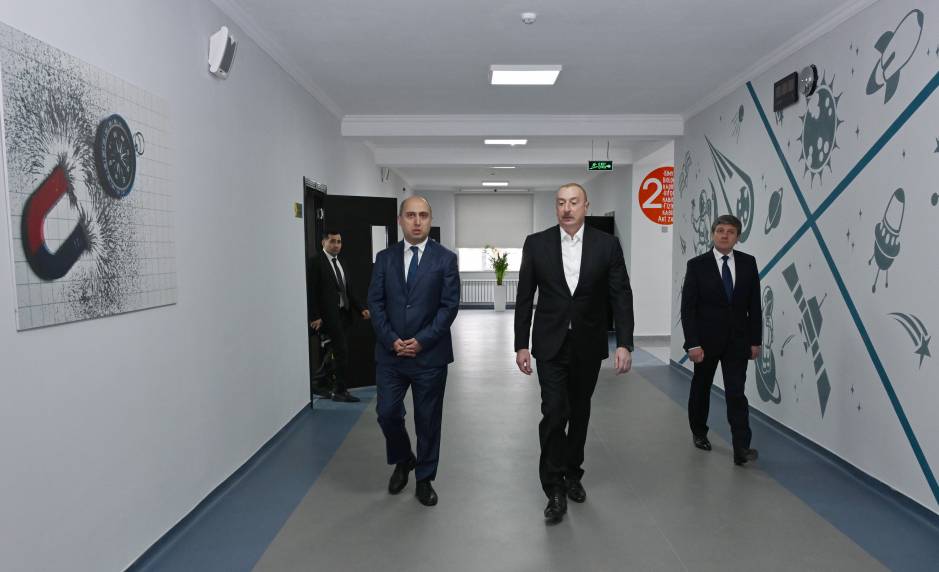14:08
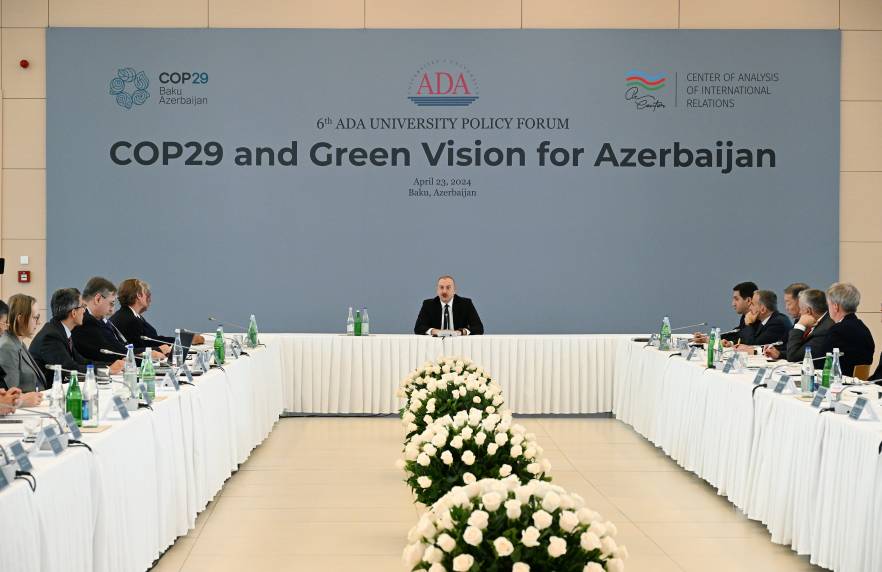
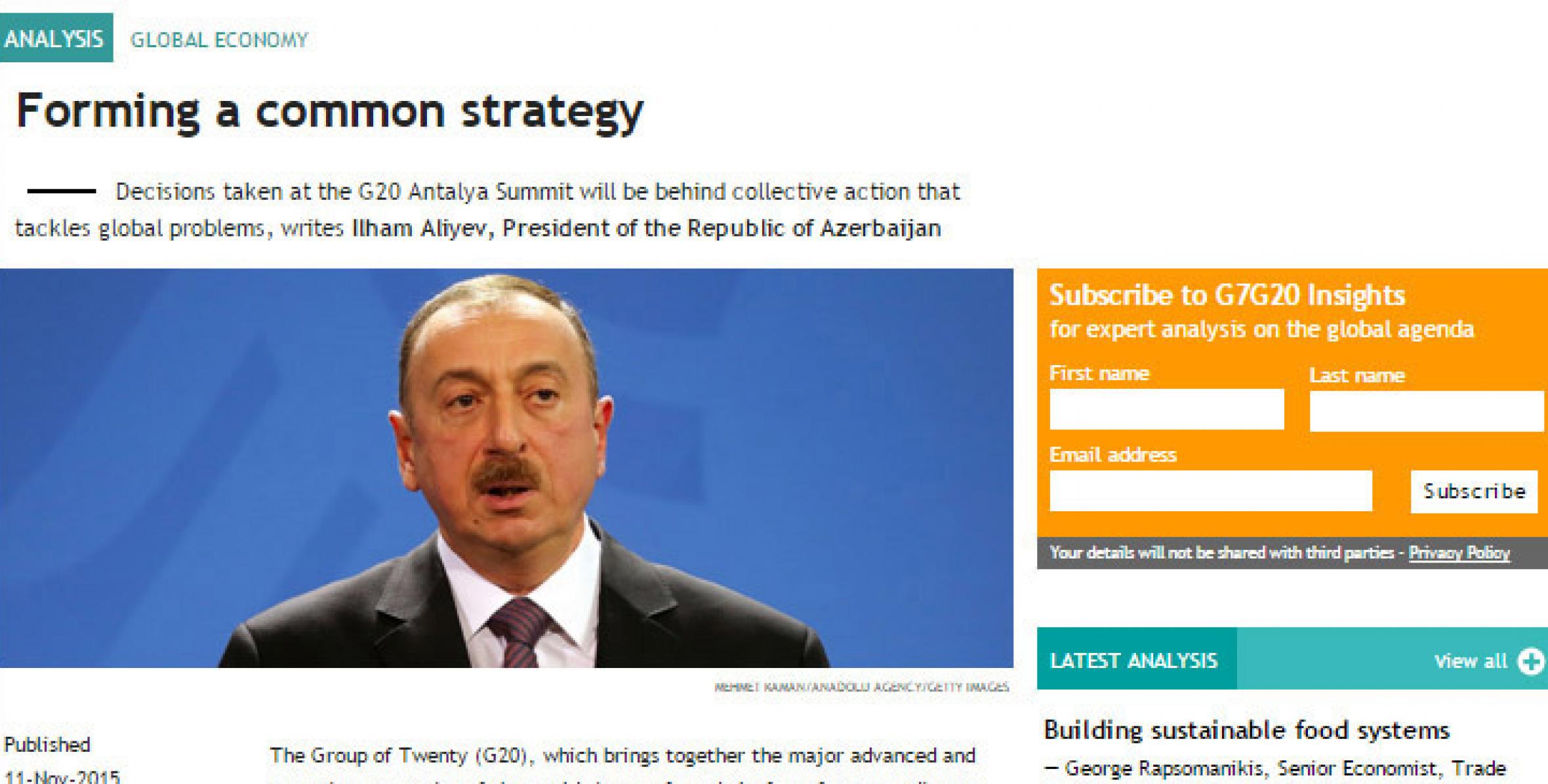
A special edition on the G20 Leaders Summit in Antalya has been published. The edition features an article headlined "Forming a common strategy" by President of the Republic of Azerbaijan Ilham Aliyev.
X X X
The Group of Twenty (G20), which brings together the major advanced and emerging economies of the world, is a preferred platform for responding to pressing global challenges. Turkey's G20 presidency for 2015 has enormous significance for its regional neighbours, including Azerbaijan. In the past, Turkey paid great attention to bolstering ties within the G20 and between the G20 and other countries, and made a tangible contribution to achieving positive outcomes for cooperation. Turkey has, owing to its recent successful policies, transformed itself into one of the world's advanced countries and prominent power centres. Azerbaijan is particularly delighted by the achievements of its strategic ally and its growing role as a key guarantor of peace and stability in the region. It is upon Turkey's invitation that Azerbaijan partakes in this meeting as a fully fledged member and, for that, I wish to personally extend my profound gratitude to President Recep Tayyip Erdoğan.
Azerbaijan has followed a distinctive path of development in the 24 years since its independence. The Constitution, conforming to democratic norms, was adopted, and a multi-party parliament was established in 1995. The distribution of power and democratic governance has taken place in the framework of the establishment of a state governed by law. As a result of reforms, we have managed to build a liberal economic system while extending comprehensive state support to the development of civil society institutions, together with ensuring human rights, pluralism, freedom of speech and information, and a free internet.
Today, Azerbaijan offers its own development model to the world, backed by internal stability, civil unity and solidarity in society, and an environment of peace and tolerance among the different peoples and religions living together in a liberal, sustainable and dynamic economy.
In 1994, Azerbaijan initiated the signing of the 'Contract of the Century' with companies representing leading countries for the production of the vast hydrocarbon resources of the Caspian Sea and their export to international markets. Subsequently, Azerbaijan has implemented such tremendous projects as the Baku-Tbilisi-Ceyhan oil and the Baku-Tbilisi-Erzurum oil/natural gas pipelines, which have played a substantial role in ensuring both Europe's and the world's energy security. These projects were extremely important for both the global economy and Azerbaijan's independent development, and played a unique role in cementing our country's international relationships.
A diversified economy
Azerbaijan, having ensured its own energy security, now plays an instrumental role in providing a reliable energy supply to other countries. At present, within the Southern Gas Corridor, we are seriously involved with the transportation of the Caspian Sea's rich natural gas resources to Europe, through such transnational gas export projects as TANAP and TAP. We have already begun the construction of these projects jointly with Turkey and our European partners. The development of the Shah Deniz 2 project, which will bring the vast natural gas resources of the Caspian Sea Basin online will provide for the further continued development of Azerbaijan and contribute immensely to Europe's energy security.
Azerbaijan plays an active role in establishing transnational communication lines and transport/transit corridors with modern infrastructure within the region and beyond. Today, Azerbaijan has already become the region's transport and logistics centre. The Baku International Sea Port, commissioned in 2014, the modern international air transport system and, finally, the Baku-Tbilisi-Kars railway, to be operational in the foreseeable future, will make Azerbaijan central to the East-West and North-South transport corridors, and place it in the heart of the Europe-Asia exchange.
Thanks to its effective economic policy, Azerbaijan's gross domestic product (GDP) has grown 3.4 times; the volume of the non-oil sector and industrial production has tripled, and the share of the non-oil sector of the economy has increased exponentially in the past 12 years, reaching 68.4% based on the first eight months of 2015.
This is clear evidence that the country's economy is diversified and that its dependence on the oil sector has dropped dramatically. Since 2003, Azerbaijan's economy has attracted some $200 billion of investments, with a substantial share from foreign investments. The economy's traditional sectors saw an overhaul, and new areas such as tourism, space and defence industries, information/communication technologies and others were established. Azerbaijan has joined the ranks of the space states by launching its own two satellites.
Solving social issues, improving the welfare of its citizens and increasing employment opportunities have been among the priorities of state policy. Thousands of production facilities have been established in the country's regions and 1.4 million jobs created, with one million being permanent ones, through the implementation of purpose-oriented measures. In this period, basic income has grown 6.5 times, and unemployment and poverty reduced to 4.9% and 5% respectively.
Addressing critical issues
Addressing the issue of food security and the reliable supply of foodstuffs through domestic production was identified as a priority. Sustainable growth in agriculture has been achieved, and the objectives in the area of food security have been largely accomplished due to the adoption and successful implementation of critical state programmes. Agriculture and food production in Azerbaijan between 2005 and 2014 has increased by 48.9% and 39% respectively.
A great deal of work has been carried out to further improve the business climate, to advocate rights and the interests of investors, and to create best practice conditions for local and foreign entrepreneurs. As a result, the share of the private sector in the national economy surged by 82%. Since 2002 until today, the National Entrepreneurs Assistance Fund has managed to issue more than $2 billion of preferential loans to the business community, and this indicator equalled $380 million in 2014 alone.
The external debt of Azerbaijan slightly exceeds 10% of its GDP, one of the lowest worldwide. Prestigious international economic and financial organisations and rating agencies predict a sustainable development of the Azerbaijani economy, and appreciate the measures undertaken in this respect. According to the World Economic Forum's Global Competitiveness Report 2014–2015, Azerbaijan advanced to 38th place among the 144 countries of the world.
Any reform implemented in Azerbaijan is led in accordance with development trends in the world economy, while being based on concrete national programmes and the application of modern technologies. Our country both absorbs innovations existing in the world, and acts as an initiator of the latest ones in various sectors. In this context, we can particularly underline Azerbaijan's brand: the State Agency for Services and Social Innovations to the Citizens under the President – the ASAN Service centres and all its affiliates. The ASAN Service is a modern model of public relations. It embodies a new approach to the relationship between the state and its citizens, and has a very positive effect on eliminating red tape and possible corruption. The ASAN Service practice is closely studied by other countries, and its experience is widely spread.
Multiculturalism
Today, Azerbaijan is recognised as important in realising an independent policy in the international arena, distinguished by its principled position and contributing to the resolution of global problems. Azerbaijan constantly develops its bilateral and multilateral relations, based on equality, mutual confidence and beneficial cooperation with the world's countries and international organisations. As a result, Azerbaijan was elected to the United Nations Security Council with the support of 155 countries, and contributed
to peace and security and the resolution of global problems. While hosting numerous international events, Azerbaijan fosters its status as a hub, both in the region and in the wider area. It hosted the European Games in 2015 and turned a new and interesting page in the history of sports: it will host the Islamic Solidarity Games in 2017. The organisation of both these events in a period of only two years proves that multiculturalism is well reflected in Azerbaijan.
I think that the national development strategy and the development model of Azerbaijan in these independence years offer interesting new perspectives for G20 members. I am confident that, had Azerbaijan not been in conflict with Armenia for the past 24 years and had 20% of its territory occupied, the scope of its successes would be much greater. I would like to inform you that, in those lands, an ethnic cleansing policy was carried out, together with the destruction of the social and economic infrastructure, including cultural monuments, and the emergence of one million refugees and IDPs. Unfortunately, during this period, the international community failed to demonstrate its resolve in the resolution of this conflict, while the decisions and resolutions of the world's leading international organisations, including the UN Security Council, were not implemented and the norms of international law were not respected.
At the same time, the conflicts and civil confrontations created in post-Soviet territories, as well as in the Middle East and Africa, undermined the development of these regions and made possible the failure of the national economies, social injustice, the destruction of cities and villages, and a large flow of refugees. Of course, the resolution of economic and financial issues, either at global or regional levels, seems complicated and even impossible, in light of the threats to peace, stability and security. Therefore, the issues on the G20 summit agenda should be viewed through the prism of current political processes. The settlement of existing political crises and the resolution of conflicts should be based on international law, norms and principles.
The dramatic fall in energy resource prices and reigning uncertainty in the world market since the second half of 2014 could force many countries to face a worsening economic environment and even such challenges as stagnation and decline in the medium term. Serious consequences may already be observed in several countries. Therefore, it is important to take steps to stabilise the global energy market and ensure a favourable atmosphere for both energy exporters and importers.
Azerbaijan welcomes plans related to the energy supplies to various regions and the resolution of food security within vulnerable countries. It joins the initiatives to create beneficial and predictable trade regimes between countries, bettering the social status of peoples worldwide, promoting investments, fostering gender equality and empowering women. Our country supports the practical measures envisaged in all these areas.
At the same time, the efficiency of efforts to cope with global economic crises should be assessed. Stabilising steps should be even broader, in order to trigger serious discussions to increase the resistance of the world economy to post-crisis threats and reflect adequate opinions in the G20's final communiqué.
In my opinion, the discussions and decisions at the G20 Antalya Summit will be instrumental in undertaking real and effective measures, related to resolving current problems and forming a common strategy to address many global issues.
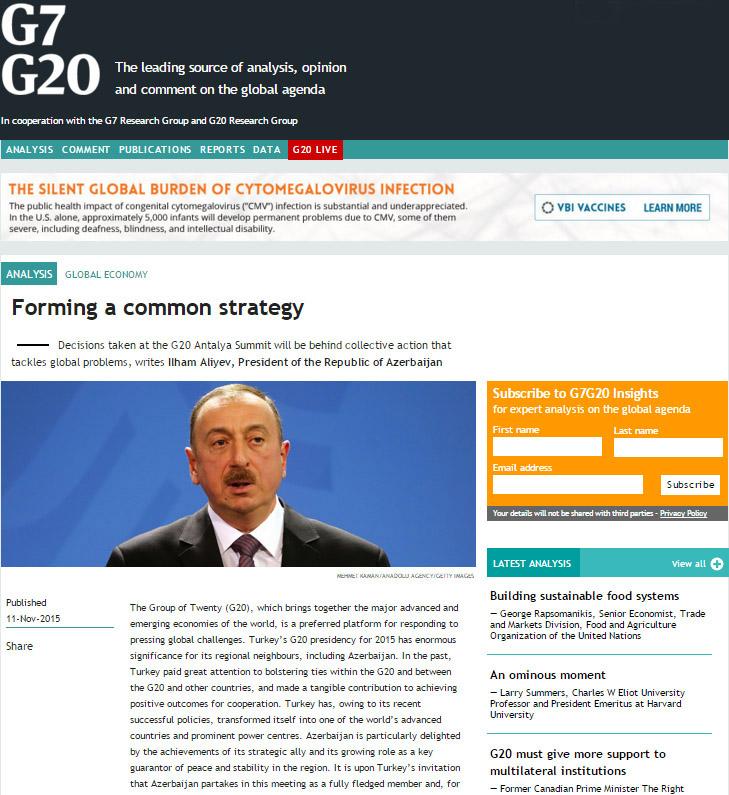
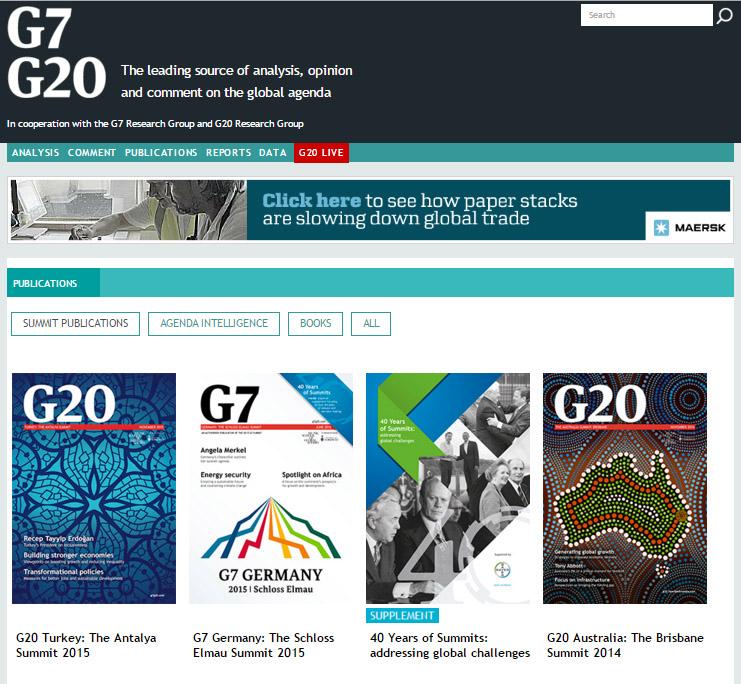

President of the Republic of Azerbaijan Ilham Aliyev completed his working visit to the Russian Federation on April 22.
22 April 2024, 23:13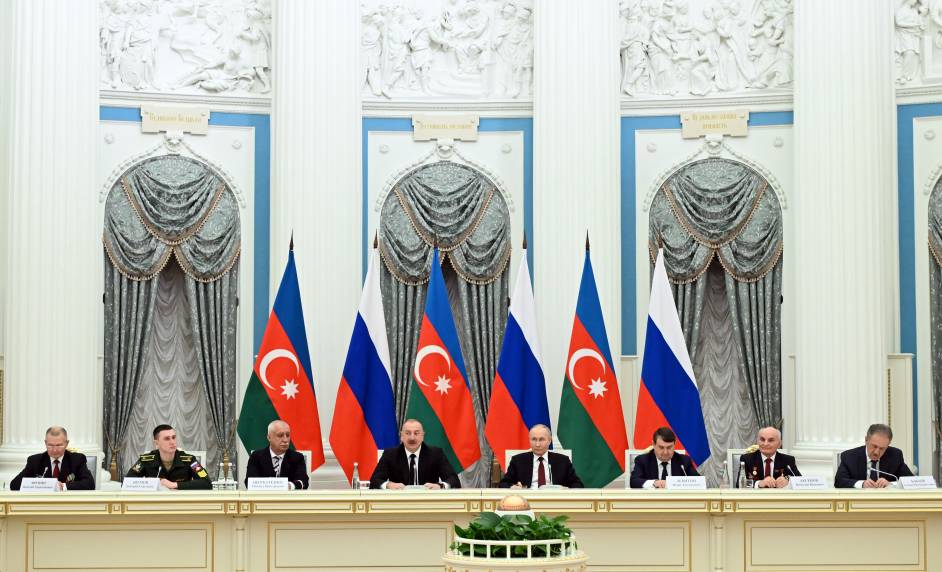
Ilham Aliyev, President of the Republic of Azerbaijan, and Vladimir Putin, President of the Russian Federation, had a joint dinner in Moscow on April 22.
22 April 2024, 20:48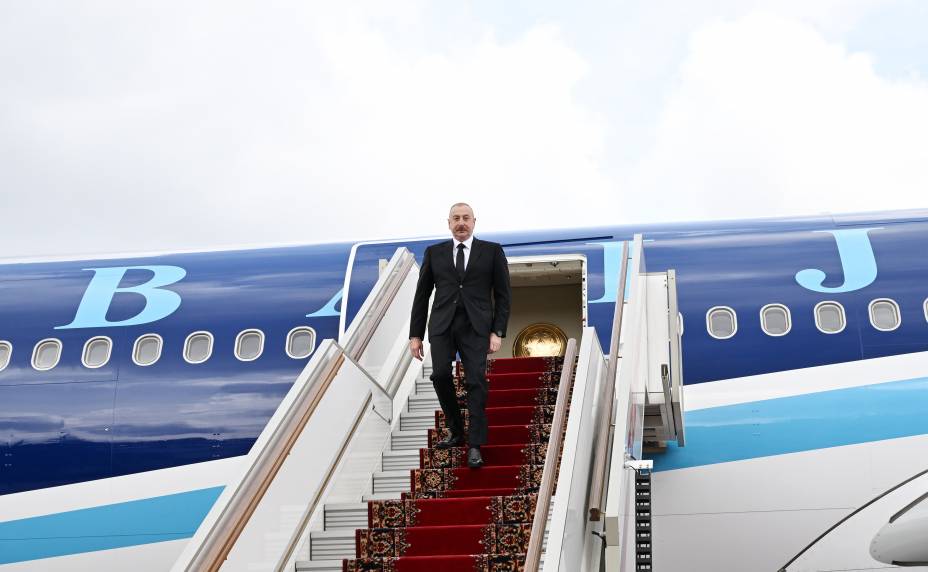
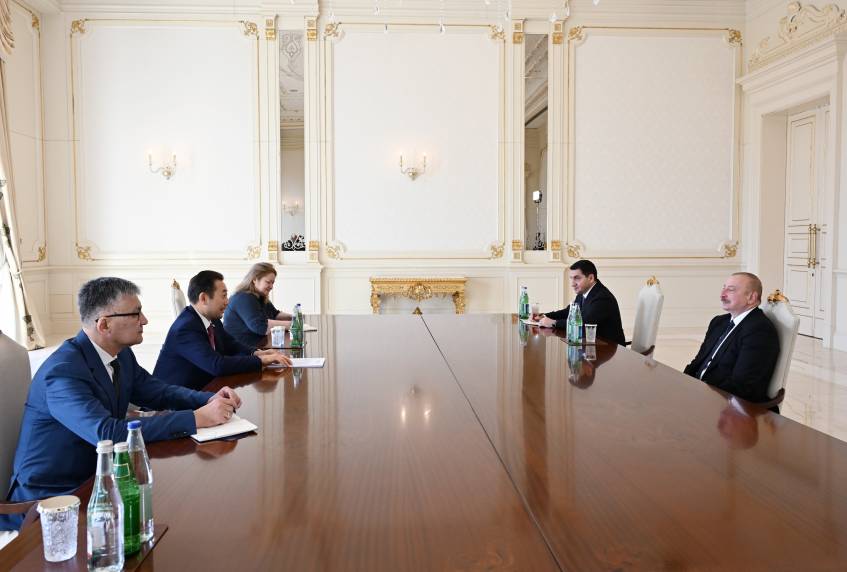
Aleksandar Vučić, President of the Republic of Serbia, made a phone call to the President of the Republic of Azerbaijan Ilham Aliyev, on April 16, briefing him on the pressures Serbia has been encountering recently and requesting the support of the friendly...
16 April 2024, 20:36Dear Mr. Pellegrini,
I sincerely congratulate you on your election as the President of the Slovak Republic.
The development of friendly relations with Slovakia holds great significance for us. Currently, there are good opportunities for enriching the...
15 April 2024, 13:06Prime Minister Muhammad Shehbaz Sharif of the Islamic Republic of Pakistan made a phone call to President Ilham Aliyev of the Republic of Azerbaijan on April 9.
Pakistan's Prime Minister congratulated the head of state on the occasion of Eid al-Fitr and wished...
09 April 2024, 19:52